Critical care expertise, experience define the 'C' in ICU
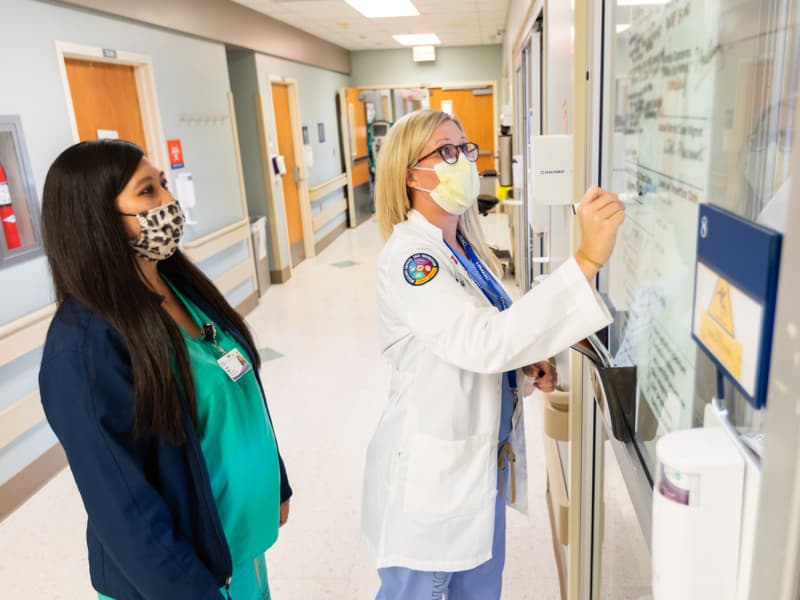
When Channelle Hunter begins her day in the University of Mississippi Medical Center, the care she gives for the next 12 hours to the sickest of the sick can’t be replicated or matched by most of the state’s intensive care units.
An acute care nurse practitioner in the cardiovascular ICU, Hunter keeps her patients’ hearts and lungs viable using technology elite to her profession. That includes ECMO, or extracorporeal membrane oxygenation, to pump and oxygenate a patient’s blood outside the body; a left ventricular assist device, a pump that partially or completely replaces the function of a beating heart; and an impella pump that draws blood out of a failing heart and directs it to the aorta.
An impella heart pump that draws blood out of a failing heart and pumps it into the aorta. An intra-aortic balloon pump to control the flow of blood through the aorta so that it can reach the rest of the body.
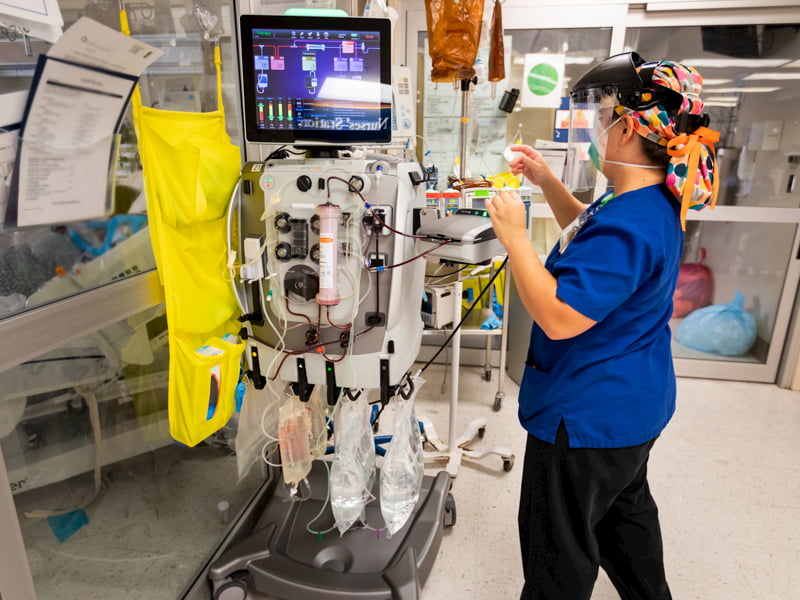
“Our nurses and my advanced practice provider (APP) staff are specially trained to take care of those devices,” said Hunter, the lead APP for her unit. “We take all the ECMO patients for the state.”
She’s a cornerstone of the Medical Center’s contingent of critical care providers who provide 24/7 staffing in the four ICUs. There, a total 80 patients receive the pinnacle of treatment in Mississippi delivered by health care teams from different specialties. Their expertise intertwines to take on myriad diseases and injuries.
“All the time, I am learning something new every day,” Hunter said. “I’m surrounded by people who are intellectuals and who are very driven by their jobs.”
But it’s the training and experiences of the providers, and not an ICU’s bed capacity or hospital affiliation, that makes all the difference in the level and quality of care patients receive.
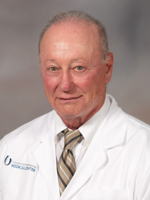
Throughout the state, “what’s not the same is the people staffing the ICU,” said Dr. Philip Boysen, professor and vice chair in the Department of Anesthesiology and executive medical director of the Mississippi Critical Care Organization at the University of Mississippi Medical Center.
The expertise in UMMC’s Conerly Critical Care Tower lies not just in the physicians, but a wealth of advanced practice providers including nurse practitioners, physicians’ assistants and certified registered nurse anesthetists. Add to that respiratory, physical and occupational therapists, pharmacists, social workers, residents, fellows, speech-language pathologists and other caregivers integral to ICU teams.
UMMC’s 28 board certified critical care physicians, or “intensivists,” also hold board certification in sub-specialties including pulmonary critical care, neurosurgery, cardiovascular surgery, trauma critical care or other areas of medicine.
“A bed is not a bed without the people that go around it,” Boysen said. “That’s the problem in viewing all ICUs as the same. Only board-certified intensivists work in our Conerly Critical Care Tower. Some of them also do other things, like see patients in the pulmonary clinic or surgery in the OR.”
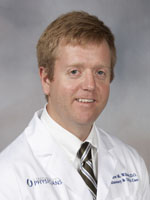
From hospital to hospital in the state, “there are different levels of comfort that ICUs have, and different levels of capabilities, depending on the team,” said Dr. Andy Wilhelm, associate professor of pulmonary medicine and medical director of the medical ICU, or MICU.
“We’ve got a large team with a deep toolbox that allows us to really rely on everyone’s experiences and cumulative knowledge to help us treat patients the best we can.”
The vast resources of an academic medical center come into play for patients in UMMC’s intensive care units, each with 20 beds: the MICU, surgical ICU (SICU), cardiovascular ICU (CVICU) and neurosciences ICU (NSICU). Together, they are the Mississippi Critical Care Organization, or MiCCO.
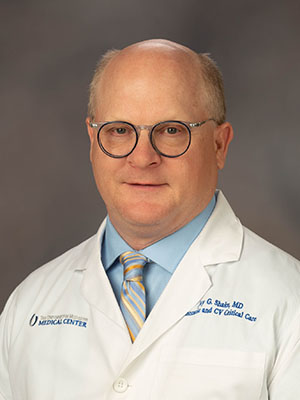
“We definitely have the diversity in our staff,” said Dr. Jay Shake, professor of cardiothoracic surgery and medical director of the CVICU. “We offer something more because of our uniqueness.”
Boysen is leading MiCCO in fulfilling its mission of providing patient-centered, high quality care. He works closely with medical directors of each ICU. In addition to Wilhelm and Shake, they are Dr. Matthew Kutcher, assistant professor of trauma/critical care surgery, and Dr. Hess Robertson, assistant professor of anesthesiology, SICU; and Dr. Christa O’Hana Nobleza, associate professor of neurology, and Dr. Ines Berger, professor of anesthesiology, NSICU.
The MICU is currently devoted solely to patients with COVID. If those beds are full, patients with COVID needing critical care receive it in the CVICU. As the pandemic progresses, patient care will expand to other ICUs.
“We can manage respiratory failure that is more severe, kidney failure that is more severe, heart failure that is more severe,” Wilhelm said.
That ICU care includes around-the-clock bilevel positive airway pressure, or BIPAP. It helps push air into the lungs via a mask or nasal plugs worn by the patient and connected to a ventilator. “Some patients who are in kidney failure, whose blood pressure is too low for regular dialysis, can receive slow, continuous dialysis – but only in the ICU,” Wilhelm said.
That organ support, a sampling of what Medical Center acute-care providers do, isn’t available at most Mississippi hospitals. Some have no ventilators, or perhaps just one.
“It’s not uncommon for us to get a call from a hospital with a small ICU. They have intubated someone, but they are bagging them (using a manual, hand-held resuscitator) because they don’t have a ventilator,” Wilhelm said. “Or, they have a ventilator, but they don’t have a board-certified critical care physician with the extra training to do more advanced mechanical ventilation.”
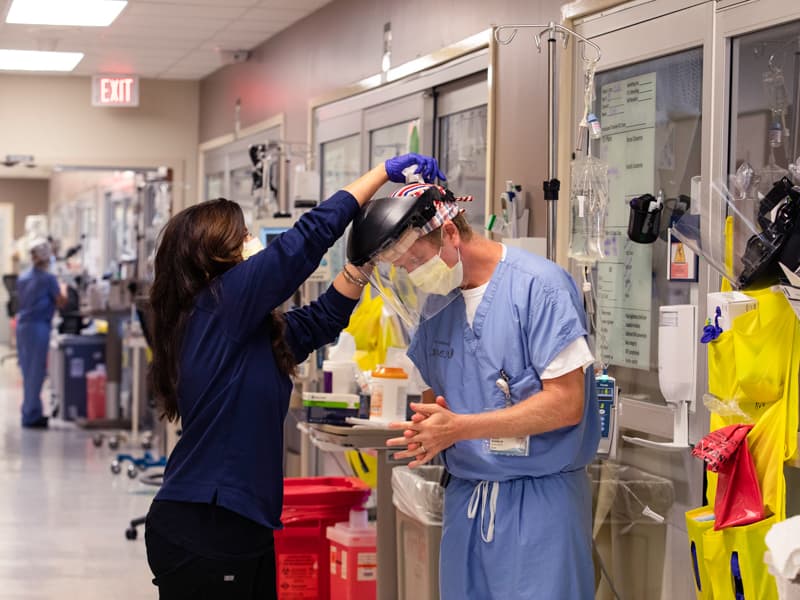
“I was in a practice in the panhandle of Florida with one ventilator. It’s scary,” Boysen said.
When a patient deteriorates beyond a hospital’s capabilities, they might be transferred to UMMC or another larger hospital. “They want to get their patient to a place with staff that has more experience with that particular illness,” Wilhelm said.
What also sets UMMC apart, Wilhelm and Boysen say, is the sheer volume of critical care that takes place at the state’s sole academic medical center. “We have physicians taking care of critically ill patients all day, every day, and they have been doing so for many years,” Wilhelm said.
They both handle pressure and thrive on it. “A lot of them tend to be people who like physiology and pharmacology. They’re interested in the science of medicine,” Shake said. “All have compassion. You definitely have to be able to deal with death and dying, and to be able to compartmentalize your emotions.”
Not to be underestimated is a very deep bench of advanced practice providers specifically trained and credentialed in acute care. In addition to intensivists, that group includes nurse practitioners, physician assistants and certified registered nurse anesthetists.
Only acute-care trained and experienced providers work in the Medical Center’s ICUs, said Ashley Seawright, executive director of advanced practice providers and the Department of Surgery’s chief of advanced practice. Even before COVID, cross-training those professionals to perform at the fullest scope of their practice was ongoing, she said.
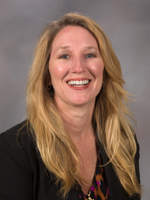
“We’ve asked these bedside providers to do their job and to also handle patients with COVID, and they are doing it spectacularly,” Seawright said.
Just one example: SICU providers whose expertise lies with trauma, cancer surgeries and transplant, and CVICU providers whose expertise is heart care, stepped up to give bedside care to patients with COVID by covering shifts in the CVICU and occasionally in the MICU.
“They are flexing to cover shifts that are not in their home unit. You might come to work and think you’ll be taking care of a new heart patient, but that day it will be patients with COVID,” Seawright said.
When the Department of Anesthesiology was asked to step up to help meet ICU manpower demands, longtime CRNA Blake Ward “volunteered immediately,” Seawright said. Thanks to the leadership of Ward, associate chief CRNA for quality and education, “they’ve been cross-trained for work outside the operating room. That’s huge,” Seawright said. “We’ve asked our CRNAs to go back to their critical care roots and take care of patients with COVID.”
“The pandemic has made us think as a unit and an organization instead of as individual specialties,” Boysen said. “We need to flex and bend. We’re probably not going to run out of ventilators. I just hope we don’t run out of people. We’ve sent physicians home because they are exhausted.”
Every day, they do what they do best. “There aren’t a lot of places that have the skill and the will to do what we do here,” Boysen said.
“I’m tired, too. I’d like for the pandemic to be over. But, we’re in it to win it.”


